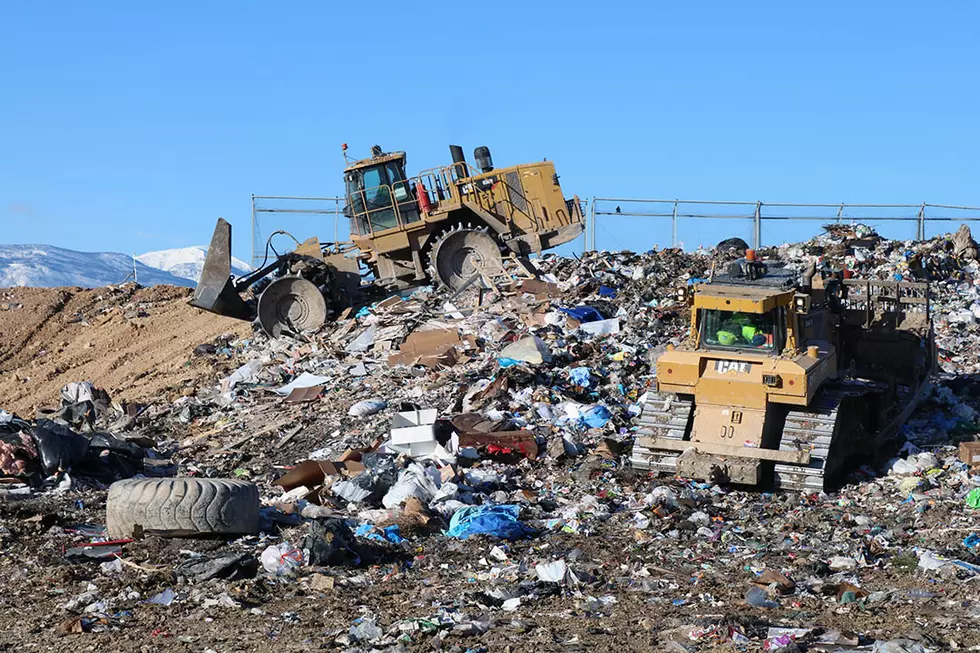
Montana PSC considers new garbage hauling service in Missoula
(Daily Montanan) The Montana Public Service Commission is weighing whether a competing garbage hauling service can operate in Missoula County, which currently is served by Republic Services of Montana.
L&L Site Services, which operates in Gallatin County, tried in 2018 to enter the market in Missoula. The PSC turned down the application after the case landed in court and a judge remanded it to the regulatory body with instructions to weigh evidence differently, according to the 2019 order.
“Perhaps L&L wishes that it had employed different strategies or marshaled additional facts in support of its 2018 application,” said L&L in an early motion to dismiss. “However, the issue of whether L&L should be granted a Class D certificate, and more specifically, whether there is a public need for a new carrier in Missoula County, has been fully litigated in a case in which the ink is barely dry.”
Last week, Quentin Rhoades, a lawyer representing L&L, and Bill Mercer, a lawyer representing Republic, made their arguments to the Public Service Commission and responded to questions about the case. The PSC regulates monopoly entities in the state and will decide if the public in Missoula County needs another trash company. Mercer is also a state Republican lawmaker from Billings.
Rhoades, with Rhoades and Erickson, said eight major customers in Missoula County including the airport said they were not happy with the service Republic provided, the price, or both, and he said L&L has proven it can enter a similar market and succeed, pointing to Gallatin County. In Missoula, L&L wants to do business as Grizzly Disposal and Recycling.
“L&L is able to handle that kind of growth and has been very successful in managing it,” Rhoades said.
In presenting his case to the PSC, Rhoades also said people in Missoula County pay some of the highest rates in the state, including twice what customers in Whitefish pay and three times the costs people in Great Falls pay.
He also argued a survey showed customers in Missoula aren’t happy, although Mercer later offered a different perspective on the data. Rhoades said a survey of people in Missoula County showed that 19 percent were displeased with Republic’s customer service, and 17 percent were dissatisfied with overall quality provided by the monopoly, Rhoades said.
Allowing L&L to compete might not be good for Republic’s profits, and it might be tough for L&L itself, he said. But he said competition would be good for at least one party.
“You know who it’s good for? It’s the shippers (the customers),” Rhoades said. “So those prices are better in Gallatin County now because of this competition than they were before.”
Mercer, though, said L&L trotted out the same number of witnesses, eight, it had used last time around to try to argue the county needed another provider, and he pointed to some of the context around the survey results as part of his rebuttal. First, he said in a community of 100,000 people, 15,000 people received text messages with the survey about garbage hauling, but just 784 decided to participate, and 224 then opted out of it.
In the end, he said 81 percent of people who responded to the survey questions said they were pleased with Republic’s services. And he wondered how that figure was any evidence the company wasn’t meeting the need or able to do so.
“When you have 15,000 people who are asked a question and only 584 decide to answer it, and of that group, 81 percent say they’re pleased with the services, do you have a public need in this community?” said Mercer, of Holland and Hart.
He also pointed out that notable voices were missing as proponents of L&L’s application, such as Missoula’s elected officials. For example, when the City of Missoula wasn’t happy with the private company running the water utility, it went to court and forced a purchase by the municipality. Mercer, who represented the Carlyle Group in that case, said the fact that the mayor and city councilors have not showed up and demanded L&L be allowed to serve the market in this case should be persuasive.
“That’s in our view very, very significant,” Mercer said.
So was the lack of new information from L&L since it made its request in 2018, he said. In the 2019 order denying L&L’s application for a Certificate of Public Convenience and Necessity, Commissioners said they lacked some comparative operational and market analyses, Mercer said. He pointed to specifics the PSC noted in the earlier order, such as details about market concentration, price and route comparisons, and service options — and noted the absence of those items in the current docket.
“This record is bare in that regard,” Mercer said.
The PSC will evaluate “public convenience and necessity” to decide whether to authorize a certificate to L&L, according to state statute. It will weigh the effects the proposed service will have on existing services, among other considerations.
In an email, Dan Stusek, with the PSC, said Commission staff are putting together a memo that will be published in the case in the next few weeks: “The Commission will then have a work session to reach a final decision on L&L’s application and will issue a written decision soon thereafter. We would expect a work session during the first few weeks of March.”
